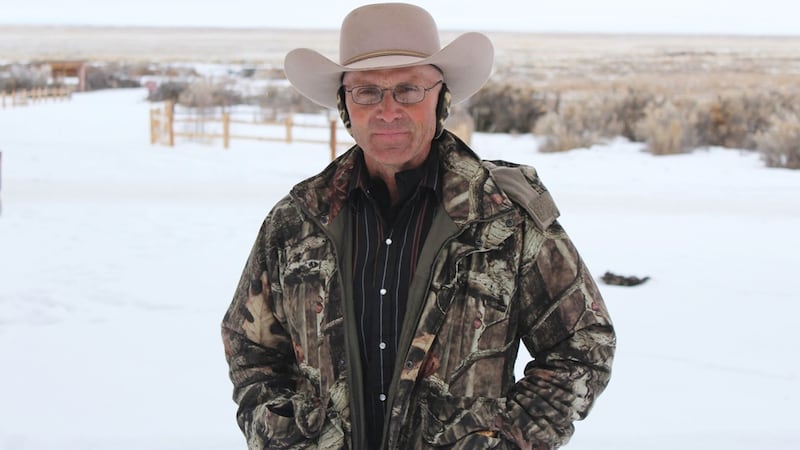The Deschutes County Sheriff's office said today that it first informed the FBI more than a year ago of evidence federal agents had lied about firing on anti-government militant Robert "LeVoy" Finicum.
Yet the sheriff says the FBI failed to place the agents on administrative leave.
FBI special agent Joseph Astarita has been indicted by a federal grand jury for allegedly lying about firing at Finicum after he crashed his car into a snowbank in January 2016. The Oregonian first reported the indictment on Tuesday.
Finicum was killed by an Oregon State Police officer when he reached into his jacket while fleeing a roadside traffic stop that marked the endgame in the month-long occupation of Malheur National Wildlife Refuge.
Today, U.S. Attorney for Oregon Billy Williams joined state and local law enforcement at a press conference to discuss the indictment. They spoke about the allegations against Astarita to a small group of reporters in the Mark O. Hatfield U.S. Courthouse.
No representatives from the FBI spoke or answered questions.
Deschutes Sheriff Shane Nelson said he hoped today's indictment would allow the criminal justice system to hold accountable the FBI agents involved in the shooting.
Nelson said he had a "personal expectation" that the agents investigated for false statements and obstruction of justice would be put on administrative leave. Yet that didn't happen.
"This type of behavior stands in stark contrast to the professionalism and integrity of displayed by the Oregon State Police and Superintendent Travis Hampton," Nelson said. "The actions by the FBI in this case damages the integrity of the entire law enforcement profession, which makes me both disappointed and angry."
Related: LaVoy Finicum's last words were, "You're gonna have to shoot me."
According to investigators, Finicum's pickup truck careened into a snowbank, nearly hitting an FBI agent, as he fled a traffic stop on U.S. 395. Astarita, a member of the FBI's elite Hostage Rescue Team, shot twice, striking the roof of Finicum's truck and missing a second shot.
Nelson said Astarita was not the FBI agent who was nearly struck by the pickup.
Although Astarita's bullets missed Finicum, they set in motion the events that lead to Finicum's death. Minutes after he shot, state troopers showed up and opened fire on Finicum as he reached toward his coat pockets, where he allegedly kept a 9mm handgun. One of those shots pierced Finicum's heart, killing him.
The FBI team initially denied that any of its members had fired on Finicum. But a state trooper reported that he had seen shotgun casings near the agents when he arrived on the scene. Those casings were not found by investigators.
The other agents who were at the scene of the shooting are still part of an ongoing investigation by the Deschutes County Sheriff's Department.
A grand jury returned the indictment against Astarita, on a charge making false statements with intent to obstruct justice and two counts of obstructing justice over the past 18 months.
The false statement charge could result in a sentence of up to five years in prison, and the obstruction of justice charges could lead to 20 years.
Nelson and Oregon State Police superintendent Travis Hampton emphasized that the alleged lies did not reflect the typically strong and professional relationship between agents at the local FBI offices and local law enforcement officers, including state troopers.
"It is deeply disappointing and I am discouraged by the prospect that the association of the state police with this allegation may diminish our reputation and the good work of the state troopers," Hampton said.
